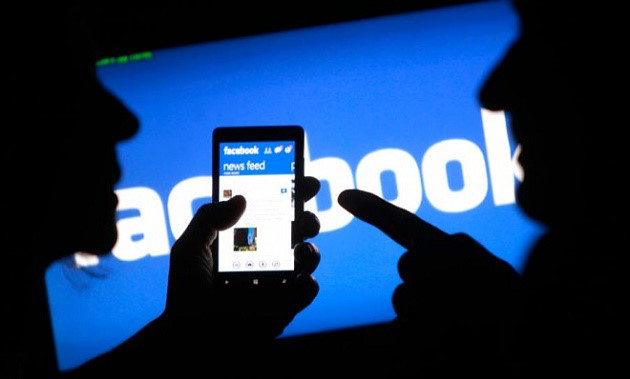By playing their own rules, international social networks like Facebook or Youtube not only make it difficult for Vietnamese state agencies to dispense their tasks of administrative management, but they also cause Vietnamese enterprises endless misery with fake or misleading content.

Social networks have caused a lot of trouble for enterprises in Vietnam (Illustration)
Misleading clips on social networks
On September 6, 2017, Heineken Vietnam Brewery Company Limited (Heineken Vietnam Brewery) sent a special letter to the Ministry of Information and Communications (MIC), denouncing Youtube and Facebook for uploading a video that “causes misunderstandings and negatively affects Heineken’s operations and business.”
This video were posted on Youtube and Facebook in 2016 and reposted in May 2017.
According to Heineken, this video was posted with the title “Heineken counterfeit production” and the description “Counterfeit Heineken beers, bottled waters, and carbohydrate drinks are widely sold in the market.”
Heineken was of the opinion that the video was recorded in a Chinese beer smuggling facility which is changing the content of Heineken products by deleting the ID code on each bottle.
“The Heineken beers in this clip are genuine products. The smuggling facility is located in China and has no relationship with Vietnam.
However, the title and description of the video have caused a misleading negative impression of a large-scale counterfeit beer production facility in Vietnam,” Matt Wilson, director of corporate affairs at Heineken Vietnam Brewery, stated in the letter.
Wilson said that this misleading content may be created deliberately to damage the Heineken brand in Vietnam, or Heineken’s finances.
Heineken reported the issue to Facebook and Youtube, but the social networks refused to take action without "a copy of a court decision or other official legal document.”
Up till now, the video has not been removed from Facebook or Youtube. Notably, not only Heineken, but many other enterprises in Vietnam saw their brands and finances damaged by fake content on social networks.
Previously, in March 2017, MIC’s Authority of Broadcasting and Electronic Information received two documents from Vinamilk and Vietnam Airlines, reporting that their advertising videos are linked to malicious content on Youtube.
Besides, a wide range of famous brands, such as Comfort (Unilever), Pampers, Ariel (P&G), Yamaha, and Samsung Vietnam were also victims of social network attacks when numerous clips with misleading content spread like wildfire on social networks.
Playing by one’s own rules
Not only international social networks, but many global service providers have been playing by their own rules, so Vietnamese customers have to follow when using social networks and services.
Google Play Store in Vietnam provides mobile phones with charging services and applications. However, there are only two ways of payment, including international credit or debit cards, under the management of Google Payment Corporation in the US.
Similarly, AdWords, an online advertising service developed by Google where advertisers pay to display brief advertisement videos to web users, accepts payments through MasterCard, Visa or Visa Electron.
Youtube pays its partners through its own networks and partners can receive their payments only after these networks take their commissions, which are included in the payments to Youtube’s partners. The amount of commission was negotiated by Youtube and its networks.
Regarding Netflix, which entered the Vietnamese market in 2016, the system collects service fees through international payment cards. Up till now, Netflix has not established a legal entity in Vietnam.
The “rules” of these foreign service providers, on one side, are inconvenient to Vietnamese consumers because international payment cards often charge higher service fees than domestic ones.
On the other side, this seems to be unfair to domestic service providers, who have to pay a lot of extra expenses for infrastructure, technology, human resources, and taxes, while international service providers are not subject to many of these charges to maintain their operations in Vietnam.
In addition, some foreign enterprises are not legally incorporated in Vietnam, but they have agencies in the country to help them provide services to Vietnamese customers.
Tax departments in Vietnam can only collect tax from the agencies, not the foreign enterprises themselves.
These foreign enterprises refer to the bilateral agreements between Vietnam and their countries which specify that only enterprises with permanent establishments in Vietnam have to pay tax in order to avoid double taxation.
Enterprises in Vietnam highly disagree and hope that related state agencies will soon find solutions to collect tax from these foreign enterprises with the aim of creating a level-playing field in Vietnam.
VIR